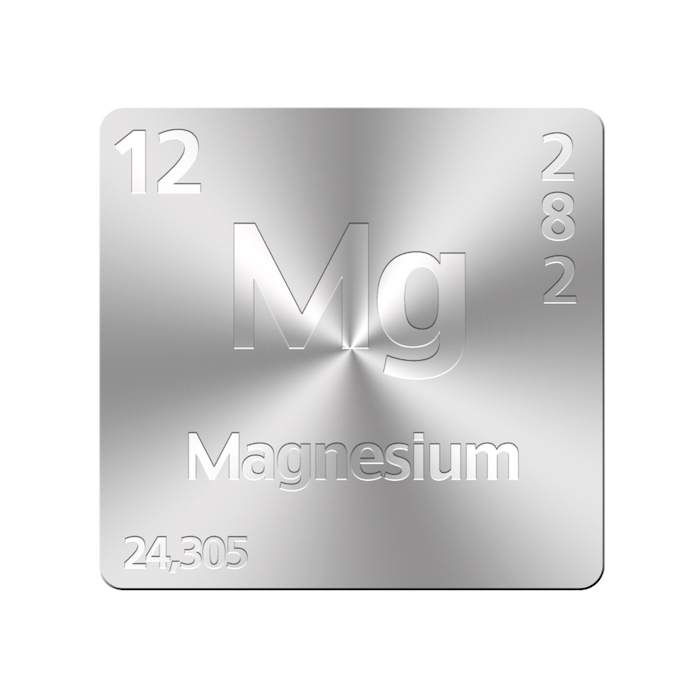The stresses of life are unavoidable. Finances, work, family, social life, not to mention the 24 hour news cycle.
We’re probably just stressing you out talking about it!
That’s not our intention. In fact, we want to help you manage that stress.
Stress management isn’t all in your head
Unfortunately, stress pops up at the worst of times. If you have a looming hurdle or difficult situation, stress likes to come along and make it even more challenging. This can make you more emotional rather than rational, put your immune system at risk, and even exacerbate pain or any health condition you may already be suffering from.
But it isn’t all in your head. Stress affects you physically, and you can help manage it physically. This includes exercising and eating well. But in our busy world, adding these to your daily routine is often easier said than done.
Plus, there is something else going on…
Stress leads to excessive magnesium loss
Since stress is much more than a mental affliction, long-term stress can result in your body not functioning properly or even developing an illness.
When faced with stress, our body releases multiple different types of hormones into our system. Adrenaline, norepinephrine, and cortisol are produced by our adrenal glands, triggering increased responsiveness and our body’s fight or flight response.
You may find that when you become stressed, your muscles tense, breathing increases, and vision improves. These are tell-tale signs that your body has released these hormones and they’ve entered your bloodstream.
And though this type of response would have been critical to our ancestors hunting for food or living amongst the dangers of nature, it’s hardly useful in our modern world. And since we’re stressed so much, we’re overdoing it. And this has consequences.
Our bodies are not set up to endure constant states of heightened emotional or physical endurance. Every time that our adrenal glands engage this response, other functions within our body suffer. Such as our magnesium levels.
Stress has been shown to greatly increase the volume of magnesium in the urine. This means that the more stress you experience, the higher possibility of a deficiency. When you factor in that almost half of Americans aren’t getting enough magnesium in the first place, it’s no wonder that so many of us experience issues sleeping, concentrating, or supporting strong muscles. [1, 2]
How does magnesium help with stress?
 Several studies have shown that magnesium can help with those battling not just stress, but anxiety, anger, and other negative emotional responses. [3, 4, 5]
Several studies have shown that magnesium can help with those battling not just stress, but anxiety, anger, and other negative emotional responses. [3, 4, 5]
This is because magnesium is what helps us maintain a calm, restful, and relaxed state. The mineral is well known for its ability to naturally relax muscles and reduce nerve excitability, and it’s often utilized as a means of assisting with pain, muscle spasms, and cramping.
As you can imagine, any type of discomfort within the body can make handling even light stress much worse. In this way, magnesium can not only help with your initial stressors, but the discomfort that may be exacerbating your problems.
In addition, magnesium is best known for supporting healthy sleeping patterns. When you don’t get the rest you need, you can become irritable. A lack of sleep impacts all of our systems, including energy levels, memory, efficiency, and how we handle obstacles. If you’re getting a proper sleep every night, you’ll be much better equipped to handle your daily stressors.
Finally, it’s important to note that magnesium is a neuroprotective agent that helps support healthy brain function. Recent research has shown just how important magnesium is to our psychological well-being. When magnesium levels are increased, so is our mood, and our ability to handle the obstacles life likes to throw at us. [6]
Chicken or the egg scenario?
When put this way, it’s easy to wonder what came first – the magnesium deficiency or the stress?
The more stressed you get, the less magnesium your body is likely to have, which in turn can make you more susceptible to stress, meaning less magnesium…
This is an awful spiral to be going down, especially when you learn just how crucial magnesium is for our bodies to function properly. After all, it’s involved in over 600 biochemical reactions throughout the body!
Don’t let yourself go without this crucial mineral.
>>> Click here to see what you’re missing without it
